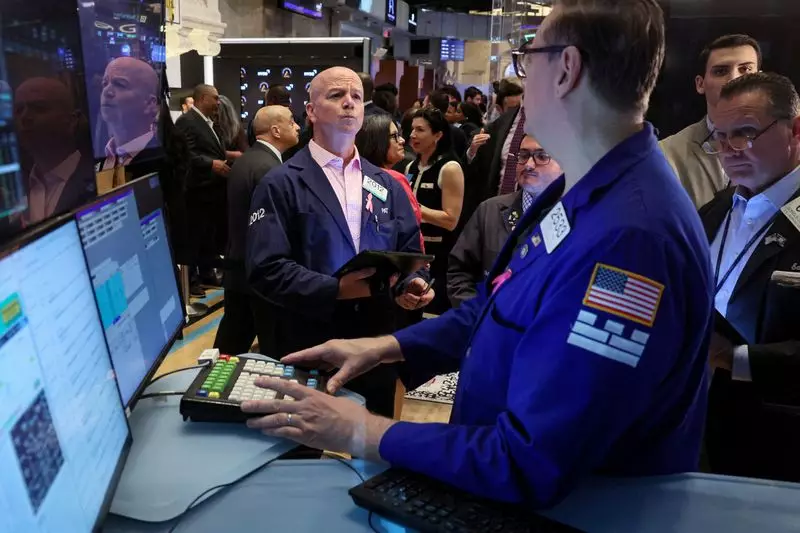The U.S. retail sector is currently facing pressure due to elevated interest rates, causing a mixed performance in the market. While the S&P 500 Consumer Discretionary Distribution & Retail index has seen a 14% increase this year, it is important to note that not all companies within the sector have experienced the same level of growth. Companies that cater to lower-income consumers, such as Dollar Tree and Dollar General, have struggled significantly. These companies have seen a decrease in their stock prices, with Dollar Tree down nearly 27% year-to-date and Dollar General falling close to 9%. The impact of elevated interest rates on buyers in this segment has been highlighted as a major contributing factor to their poor performance.
The uncertain economic landscape, coupled with rising gas prices and grocery costs, has led to a sense of financial vulnerability among lower to middle-income consumers. Greg Halter, director of research at Carnegie Investment Counsel, emphasizes that even though the economy is performing well overall, this particular segment of consumers is feeling the squeeze. Analysts are closely watching for the U.S. retail sales data to be reported next week, expecting a growth of 0.2% for May. Any results that fall short of expectations could potentially strengthen the case for the Federal Reserve to consider easing rates to mitigate the impacts of inflation.
In light of the challenges faced by the retail sector, investors are reevaluating their strategies and focusing on companies that have the potential to weather the storm of elevated interest rates. Companies like Amazon.com and Costco Wholesale have managed to thrive amid the current economic conditions due to their consumer-friendly business models. Investors are also turning to companies that offer discounts on essential household items, such as clothing and groceries, to drive sales and maintain consumer loyalty. Walmart, Costco, and TJX Companies have seen positive outcomes, with their shares rising by 28%, 29%, and 16% respectively. This highlights the importance of value-driven business models during times of economic uncertainty.
Opportunities in Emerging Retail Trends
Despite the challenges posed by elevated interest rates, there are emerging retail trends that offer growth opportunities for investors. Areas like online shopping continue to thrive, even in the face of tough economic conditions. Companies like Carvana and DoorDash have shown promising growth, with their shares experiencing significant increases this year. This indicates that innovative business models and a focus on consumer convenience can still drive success in the retail sector, regardless of the prevailing economic challenges. Portfolio managers like Josh Cummings are optimistic about the potential growth in these sectors, viewing them as early-stage opportunities for investors looking to capitalize on evolving consumer behavior.
The impact of elevated interest rates on the U.S. retail sector is multifaceted, with varying outcomes for different companies based on their consumer base and business models. As the sector navigates through these challenges, investors are adapting their strategies to capitalize on emerging trends and resilient companies that demonstrate the ability to withstand economic uncertainty. By carefully evaluating market conditions and consumer sentiment, investors can position themselves to make informed decisions that drive growth and mitigate risks in the ever-evolving retail landscape.

